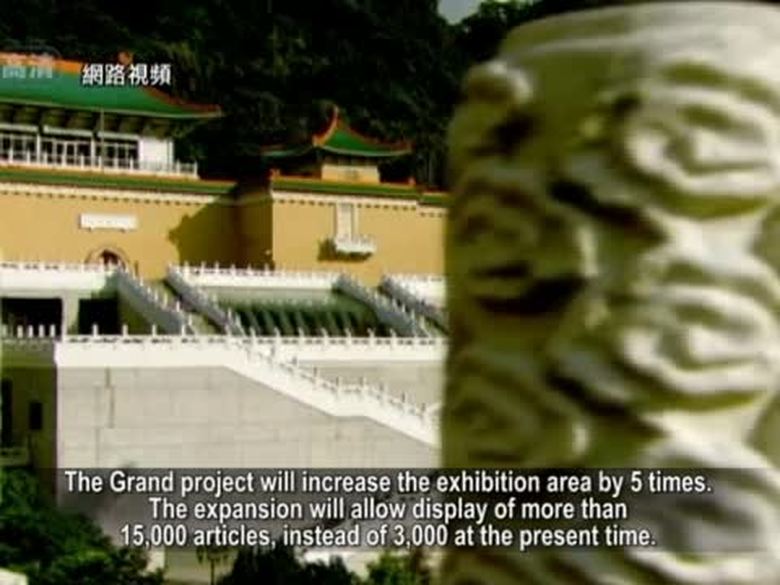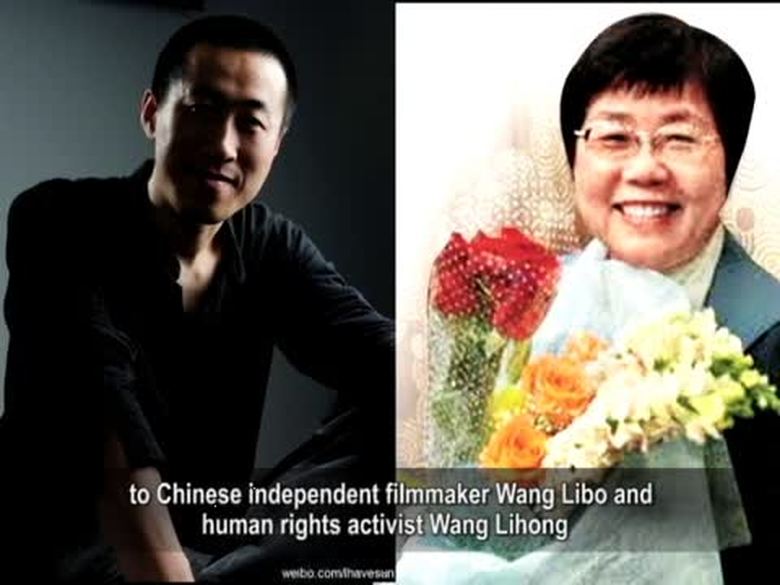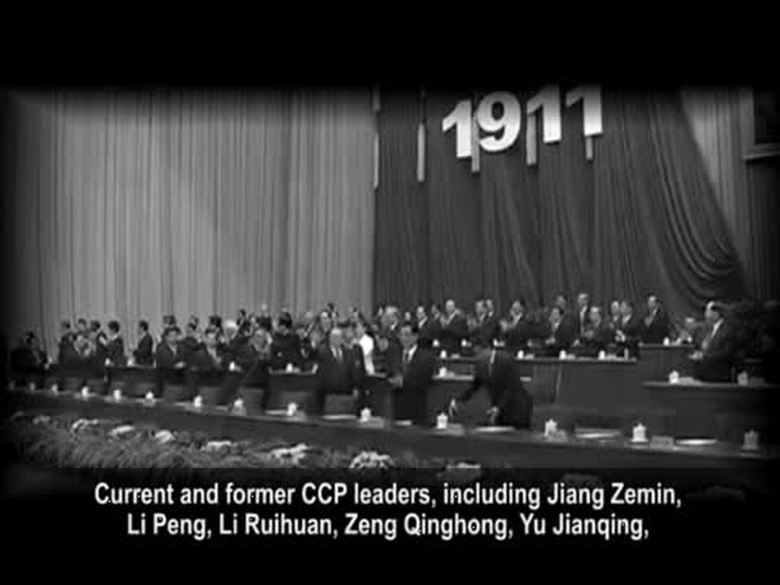【新唐人2011年10月8日訊】蘋果公司創始人之一喬布斯(Steve Jobs)逝世的消息,讓全世界都為之惋惜。在中國大陸,也掀起悼念喬布斯的熱潮,人們在唏噓這位創新英才離世之餘,也在思考,在中國,為甚麼出不了喬布斯,“蘋果”在中國的土壤為甚麼就不能成長?
無論你是否對他改變世界的奇蹟耳熟能詳,無論你是否知道他擁有的專利超過 300項,但那個被咬了一口的蘋果,以及 Mac、 iPod、 iPhone、 iPad等讓人瘋狂的蘋果產品,都足以讓人記起大名鼎鼎的喬布斯。而他在週三逝世的消息,更是讓全世界為之哀傷。
當晚,蘋果公司修改網站首頁,喬布斯的半身黑白頭像佔據頁面主要位置,左側“斯蒂夫•喬布斯”的英文黑體字下,標著“1955-2011”。遺像中的喬布斯依舊兩眼炯炯有神,望著前方。
商標上那缺了一塊的蘋果,讓人感嘆,這次真的缺了一塊。
而在地球的另一端——中國,喬布斯逝世的消息同樣引起震撼。
在網民最活躍的新浪、滕訊和百度博客上,悼念這位科技江湖的“老大”的各種感言可以說是鋪天蓋地。
有網民在博客上展示了56個紅蘋果,以紀念喬布斯56年輝煌一生。
谷歌中前掌門人李開復6號早上在新浪微博上寫道:“喬幫主一路走好,你的產品改變了世界,你的思想影響了一代人。”截止到晚上8點,李開復在網上一共發佈了9條和喬布斯相關的博文。
10月6號當天,有9萬多網友在微博上投票,對喬布斯去世的消息表示震驚,有數萬名網友說,喬布斯的離去令他們傷心。
六四天網義工 蒲飛 :“應該說喬布斯先生主要是創立高尖端的一些IT產品,他這些IT產品應該說是改變了很多IT業的形態,尤其像蘋果電腦、iPhone手機,都給行業內的同行提供了相當好的借鑒。”
中國網友在痛惜扼腕之餘,也在熱烈的討論一個問題,中國的喬布斯在哪裏?中國可以生長出天才“蘋果”嗎?
蒲飛認為,一個天才的成長不能僅靠天賦,還需要土壤,但在中國,這樣的土壤存不存在,還是一個疑問。
蒲飛:“中國現行教育制度是一個扼殺人的想像的教育制度,任何創造性的發明,或者是有意思的東西,都是不得到官方的允許和一些人的支持。應該這樣講,中國要出現喬布斯這樣的人,要從教育制度改革開始,一個不允許人進行想像的教育制度是無法培養出任何天才的,只會培養出一些工匠,而不會培養出一些大家。”
大陸浙江自由撰稿人溫克堅也認為,喬布斯讓這個世界變得更加有趣和美好,但中國不自由的環境難以產生這樣的天才。
浙江自由撰稿人溫克堅:“眾所周知的一個事實,你越在一個自由的環境裏面,人們才有想像力才有創造力,人們的創造力才能得到回報,才有機會試錯,然後各種新奇的想法才會被容忍被鼓勵,但在中國的話,是一個高度管制化的社會,很多重要的行業、重要的產業,都掌握在政府的手裏,民間面對著很多的管制,很多的天花板,創意上的天花板,哪怕有天才,天才通向成功的道路也非常狹窄。”
在喬布斯56歲的人生歷程中,他上了大學又退學,之後在家中的車庫辦起公司,而且在喬布斯身上體現出的諸如偏執、獨斷、情緒化等性格,在中國來看,喬布斯就不像一個好同志、不像一個好老闆,其所作所為與和諧社會好像不太和諧。
北京學者彭定鼎指出,中國的體制不允許你做你想做的事情,喬布斯假如生活在中國根本無法成為天才。
彭定鼎:“因為這個制度我想這是一些專制統治者的一些心理疾病吧,專制統治者實際已經生病,他們生怕喪失一切事情控制,他們希望這個世界都能按照他們的意圖來運轉,因此他們要關注每一個人來做甚麼,他們希望每一個人都不擅自去行動,要得到他們的批准,要得到他們的理解,但一般而言,他們的智力都不高。事實上,我們也做不到每件事情都報告當局,即使報告了他們也理解不了。”
不過,幸運的是,喬布斯生長在美國這個自由民主社會,讓他的創新精神得以改變這個世界。
喬布斯曾說:「領袖與跟風者的區別在於創新。」 iPod改變了音樂產業, iPhone改變了通訊產業, iPad改變了PC產業,如今,喬布斯永遠離開了,蘋果的輝煌會被超越,但喬布斯的創新精神,不會消失、不會過時。
新唐人記者秦雪、李靜、李若琳採訪報導。
Jobs' Death: Food For Thought In China
The death of Steve Jobs, one of the founders of Apple Inc.
is being mourned by the world.
In mainland China, people are grieving Jobs' death too.
They felt regretful for this talent of innovation
and also thought about why China has no such a talent,
why Apple could not develop on China's soil?
Regardless of whether one has heard of his achievements,
impacting the world, or of him owning over 300 patents,
the symbol of a bitten apple and the popular Apple goods
like Mac, iPod, iPhone and iPad would make people
keep Steve Jobs in their memories. The news of his death
on Wednesday made many around the world sorrowful.
The same night Apple's home page displayed Jobs'
black-and-white half-length photo in a central position.
1955-2011 stays under the written in black 'Steve Jobs'.
Jobs is looking with piercingly bright eyes from the photo.
The apple with a missing piece' trademark made people sigh
- this time there is really a missing piece.
On the other side of the world, in China, Jobs' death
has made people mourn and reflect on it as well.
On blogs of Sina, Tencent and Baidu, where netizens
are actively discussing the topic,
plenty of comments appeared to mourn
this “big innovator” in the world of technology.
A netizen showed 56 red apples in memory
of Steve Jobs' 56 years' life devoted to achievements.
In the morning of October 6, Li Kaifu, Google' former CEO,
wrote on his sina weibo (micro blog):
“Farewell Jobs, your products have changed the world
and your ideas have influenced a whole generation.”
Until 8 p.m. that night, Li Kaifu released 9 blog articles
on the Internet, about Steve Jobs.
On October 6, more than 90,000 netizens voted on weibo
that they felt shocked about Jobs's passing away,
and many thousands of netizen expressed their sorrow
about his death.
Pu Fei, volunteer of the folk website 64tianwang,
expressed that Jobs's death is a great loss to the industry.
A volunteer of 64tianwang, Pu said: “Mr. Jobs mainly
established high class IT production which helped a lot
in changing the ideology of the IT industry. Especially Mac
and iPhone have provided really good reference
to the other businesses within the IT industry.”
While the Chinese netizens feel sorry about Jobs's death,
some talk about where is the Chinese Steve Jobs,
and can China cultivate such a talent like Apple?
Pu Fei thinks, for a genius to develop he needs not only
a gift, but a “soil” too, which to support his development.
But in China, whether such kind of a soil exists
or not is still under question.
Pu Fei: “China's education system now is such that kills
people's imagination. Any creative innovation
or interesting staff wouldn't get the permission
of the officials, as well as many people's support.
Thus China should start from the reform of its education
system if it wants to have talents like Jobs.
System that kills people's imagination is impossible to grow
talents and can only produce “smiths,” but not geniuses.”
Wen Kejian, freelance writer from Zhengjiang, China, also
thinks Jobs has made the world more interesting and bright,
but that it is very hard for China to “produce” a geniuses
like Jobs with its restrictive environment.
Wen Kejian: "It is a well-known fact that the more freedom
you have in the environment, the more creative imagination
will people have. Their creative imagination then can be
rewarded. People have the chance of a trial and error,
and various novel ideas will be tolerated and encouraged.
But China is a society with a high degree of control.
Many important professions and industries are controlled
by the government. Civil society is facing a lot of control.
There are many ceilings, ceilings on creativeness, even if
there is a genius, his path to success is also very narrow."
In the course of Jobs' 56-years long life, he went to college
but dropped out. Later, he set up his company in his garage.
In addition, the personalities that Jobs is known with,
like being paranoic,arbitrary and emotional,
are viewed in China as Jobs' not being a good comrade,
not a good boss.
His deeds seem not to be in harmony
with the harmonious society.
Beijing-based scholar Peng Dingding pointed out that
China's system does not allow you to do what you want to do;
if Jobs lived in China, he would not be a genius.
Peng Dingding: "As to this system, I see it as a mental
illness of some authoritarian rulers.
The authoritarian rulers are actually ill. They are afraid
of losing the control over everything.
They hope that the world can operate according to their
intentions. So they pay attention to each person's actions.
They hope each person will not act without authorization.
It needs to get their approval, to get their understanding.
But in general, their intelligence is not high. In fact,
it's not possible for us to report everything to the authorities.
Even if we do, they can not understand."
Jobs lived in a free and democratic society, which helped
his creative spirit change the world in a unique way.
Jobs once said: "The difference between leaders
and trend followers lies in innovation."
iPod changed the music industry, iPhone changed the
communication industry, iPad changed the PC industry.
Now when Steve Jobs left us forever, Apple's glory may be
surpassed, but his innovative spirit will not become obsolete.
NTD reporters Qin Xue, Li Jing and Li Ruolin
看下一集

【禁聞】「中共不可說的秘密」掀神秘面紗

【禁聞】薄熙來被邊緣化 拉胡堂弟造勢忽悠

【禁聞】台灣領航中華文化 中共情何以堪

【禁聞】「粉碎四人幫」35週年 再評文革

【禁聞】盜用孔子不靈 山寨和平獎被取消

【禁聞】黑幫暴力難阻「探望陳光誠」潮

【禁聞】辛亥雙十兩岸不同調 馬籲中共正視

【禁聞】王荔蕻獲澳洲「推動中國進步獎」

【禁聞】江澤民亮衰老呆相 學者指影響漸衰

【禁聞】俄攝影展正視歷史 六四人士感慨

【禁聞論壇】微博和言論自由

【禁聞】民主黨促“花瓶黨”退出歷史舞臺

【禁聞】石油壟斷 利益妥協下的調價機制

【禁聞】是“打黑” 還是“黑打”?

【禁聞】江澤民相衰黨媒低調 胡將續掌軍權

【禁聞】北京後院緬甸起火 遷怒美國








